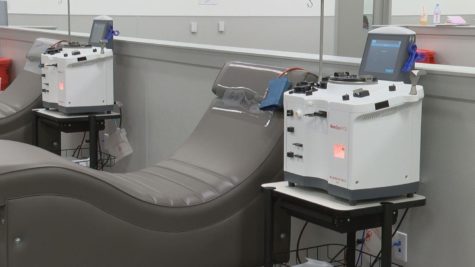High Stress Levels can increase risk of heart disease
December 10, 2014
As college students, the words “fatigue,” “irritability” and “demoralization” may sound familiar. If you are experiencing a combination of these symptoms, you may be suffering from vital exhaustion.
According to health.com, those suffering from vital exhaustion have a 36 percent increased risk of developing heart disease.
When Iowa Heart Center cardiologist Dr. Rakshak Sarda was asked if college students could be affected by vital exhaustion, his answer was “absolutely.”
“Heart disease starts at an early age,” Sarda said. “It’s important you start working on your health now, while you’re young [and] before you potentially become sick and it’s too late.”
Sarda said that heart disease is an accumulative disease that is a combination of issues, which may already be affecting your heart. Some may not see symptoms, but the disease could have already started. It’s very important to stay proactive when considering this disease.
“Stress, fatigue, shortness of breath and pain with exertion are just some of the manifestations that something could be going wrong with your heart,” Sarda said.
College students are no strangers to stress. Many students often times have so many things to worry about that it becomes difficult to maintain a calm and collected mentality.
Tiffany Iskander, ISU psychologist, explains why being a college student can be such a stressful time in a person’s life.
“There are many transitions that occur in a short period of time,” Iskander said. “Living in a new place, making new friends, being responsible for your own needs—all of these compounded with academic rigors of college can understandably lead to higher levels of stress.”
Iskander provided students with advice on how to minimize their stress levels and possibly reduce their risk of heart disease.
“It’s important for students to realize that stress and anxiety are actually adaptive,” Iskander said. “Spending time with friends, physical activity and other activities that students find enjoyable are great ways to combat stress.”
Sarda added that young adults can reduce their stress and risk by sticking to a healthy diet, not smoking, maintaining good weight management and regularly getting tested for cholesterol and blood pressure levels to seek signs early.
“Resources are available on campus to engage in self-care activities,” Iskander said. “If the stress students are experiencing is having a negative impact on their daily life, coming to SCS [Student Counseling Service] may be another way of coping.”
















